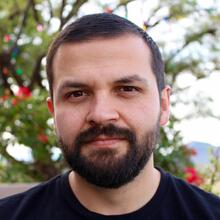Regardless of the outcome of the 2020 presidential election between Joseph R. Biden Jr. and Donald J. Trump (which should be awaited with patience and prudence), the popular “scientific” discourse around election forecasting has once again proven disappointingly misguided, at best, and fraudulent, at worst. As in 2016’s nightmarishly inaccurate din of punditry, a significant portion of journalists and the commentariat once again granted enormous platforms, time, airspace and money to popular election forecasters whose major claim to authority was their supposed scientific insight into the political future. And as in 2016, much of this prophesying has been more noise than signal.
Although no major forecaster said Mr. Biden’s win in 2020 was a statistical certainty (as Samuel Wang of the Princeton Election Consortium more or less said of Hillary Clinton in 2016), many gave a distorted picture of its likelihood. For example, on Election Day the popular forecaster and data journalist for The Economist, G. Elliot Morris, claimed that Mr. Biden had a “better than 19-in-20 chance of winning the electoral college” and that “Trump’s odds are roughly 10x lower than on Election day in 2016.” The day before, the enormously popular statistician, Nate Silver, had placed Mr. Biden’s odds of winning at 89 percent. This was coupled with a set of predictions about the state level outcomes in places like Florida, Texas, North Carolina and Wisconsin where, even in cases where the guesses were right, the numbers and margins projected were highly misleading.
The popular “scientific” discourse around election forecasting has once again proven disappointingly misguided, at best, and fraudulent, at worst.
Of course, popular election forecasters often point out that their statistics allow for failure. But unless this becomes grounds for saying their predictions cover every possibility and therefore can never be wrong, it is clear that the philosophical status of such claims requires serious reconsideration. To make matters worse, these highly flawed efforts at clairvoyance are not simply reserved to one corner of our political dialogue but exercise a kind of hegemony over the public square.
Indeed, it has become a kind of cultural rite of mass consumer election politics to inundate the popular press with a frenetic game of statistical accountancy and scorekeeping. When this happens even less space than usual is granted to thoughtful engagements with the views of ordinary citizens or on-the-ground reportage of complex cultural realities. Such narratives are sidelined in favor of a more “scientific” discourse.
To be clear: The problem is not that we bother as a society to do polling and mass survey work. Polls can, in fact, be highly valuable snapshots of political reality carried out by hardworking and intellectually honest social scientists. The problem is the popular philosophical culture around our polls—a highly superstitious set of beliefs and practices that grant unduly inflated importance and power to such quantitative and mathematically sophisticated methods. The problem, as I explain in much greater detail in my recent book We Built Reality, is our worship of technocratic and scientific control of human beings and indeed of all of reality.
This culture of technocratic control grants a false sense of power to polling and forecasting. This is not simply an innocent error free of political consequences but one that vaunts one kind of authority—that of the technocrat and wonk—over other kinds of human understanding like those of ordinary people and their experiences of culture and politics. When this happens, the election fails to be a moment for voters and citizens to encounter and learn about their neighbors (however wayward they may be) but one of brute, impersonal, gamified politics. Such gamified statistics have a mutually reinforcing relationship with a vision of journalism not as a public service but as a race to win as many clicks and profits as possible.
A gamified, marketized, pseudoscience of political futures is suffocating the possibility of real dialogue, learning and encounter.
What we desperately need is not to throw out all polling and statistical analysis but to radically decenter it. Decentering polling would mean seeing not only that polls are always, at best, educated guesses (and not strong forms of prediction) but also that they are only one very limited way of understanding political reality. A press and a people who had decentered polls would devote considerably more time and analysis to those with cultural and historical insight into the different voting populations. More time would be granted to hearing from ordinary people and their experiences. The election would be a time of taking stock and learning outcomes in a deeper cultural sense and not just a monologue of number wizardry dressed up as science.
Pope Francis warned in his encyclical “Laudato Si’” that our societies have been taken over by “the globalization of the technocratic paradigm.” As he explained:
It can be said that many problems of today’s world stem from the tendency, at times unconscious, to make the method and aims of science and technology an epistemological paradigm which shapes the lives of individuals and the workings of society. The effects of imposing this model on reality as a whole, human and social, are seen in...a reductionism which affects every aspect of human and social life. We have to accept that technological products are not neutral, for they create a framework which ends up conditioning lifestyles and shaping social possibilities along the lines dictated by the interests of certain powerful groups. Decisions which may seem purely instrumental are in reality decisions about the kind of society we want to build.
Regardless of one’s religious convictions, Americans interested in democracy would do well to heed his warnings. A gamified, marketized, pseudoscience of political futures is suffocating the possibility of real dialogue, learning and encounter.









